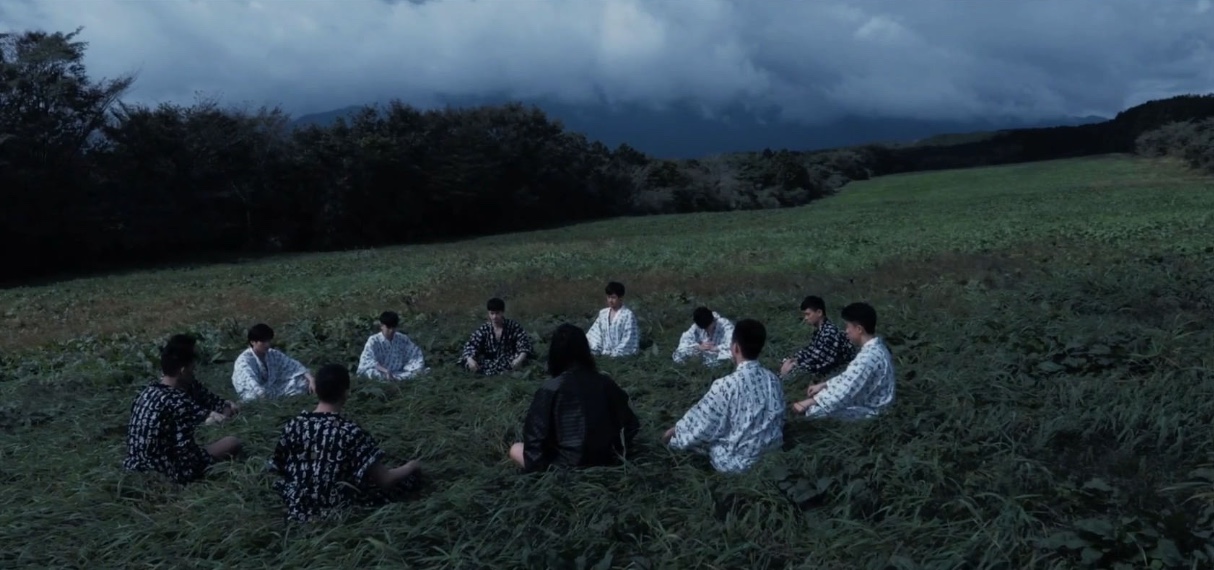
Film Review: Apostles
Film Reviews
Apostles
Director: Scud
Artwalker
Streaming 12.13
Cinema is difficult to define from any standpoint, theoretical or otherwise. Apostles, the latest film from Hong Kong auteur Scud, attempts to challenge the contemporary viewer’s definition of what it means to watch a movie. According to the film’s Letterboxd page, Apostles is a movie about a philosopher, allegedly a sort of modern Socrates, who gathers a group of young men together to discuss the notion of death. After a physical, emotional, and sexual journey, the group must decide which apostle will get to experience death in the form of sacrifice.
The concept is a loose one, and the context is difficult to figure out without reading something about the film prior to watching. Loose is the key word, though. I get the sense that narrative wasn’t the first thing on Scud’s mind as he made the film, because the story takes a backseat to visuals, edits, and sound almost immediately. Instead, the project seems to be more of an attempted ode to the male body and male sexuality. Almost every scene features a naked man, usually engaged in sexual activity.
The film works best when imagined as an abstract artwork or a stream-of-consciousness statement. There are elements of famous, outside-the-box filmmakers such as Maya Deren or Charlie Kaufmann, but for the most part, Apostles feels like a jumble of incoherent ideas and thoughts. Scud certainly challenges the concept of cinema as Apostles is far from a mainstream movie, but his intentions are ultimately unclear.
The cinematography unintentionally points out how awkwardly Scud has positioned his actors, and the acting feels forced in most scenarios. Some scenes present a beautiful picture of the naked body, others seem to laugh at it in a juvenile manner. There are cuts that feel abrupt and silence that doesn’t make sense or doesn’t blend well with the rest of the sound. For some reason, Scud felt compelled to ensure that the audience knew the name of every single character. When a character speaks for the first time, their name appears as a caption next to them. This seems a bit nonsensical when done for a chef character with only one line.
Abstract or avant-garde film is often not supposed to make sense or be understood by everyone. Still, the project as a whole is not without merit. Scud’s associations between death and sex, family and cult, friendship and romance are at the very least mildly interesting, but a bit more cohesion would have helped Apostles become more realized as a film. Cinema will always be an elusive concept, but Apostles doesn’t seem to clear anything up. –Mickey Randle
Read more reviews of indie films that elude a sense of cohesion:
Film Review: Four Samosas
Film Review: Low Life